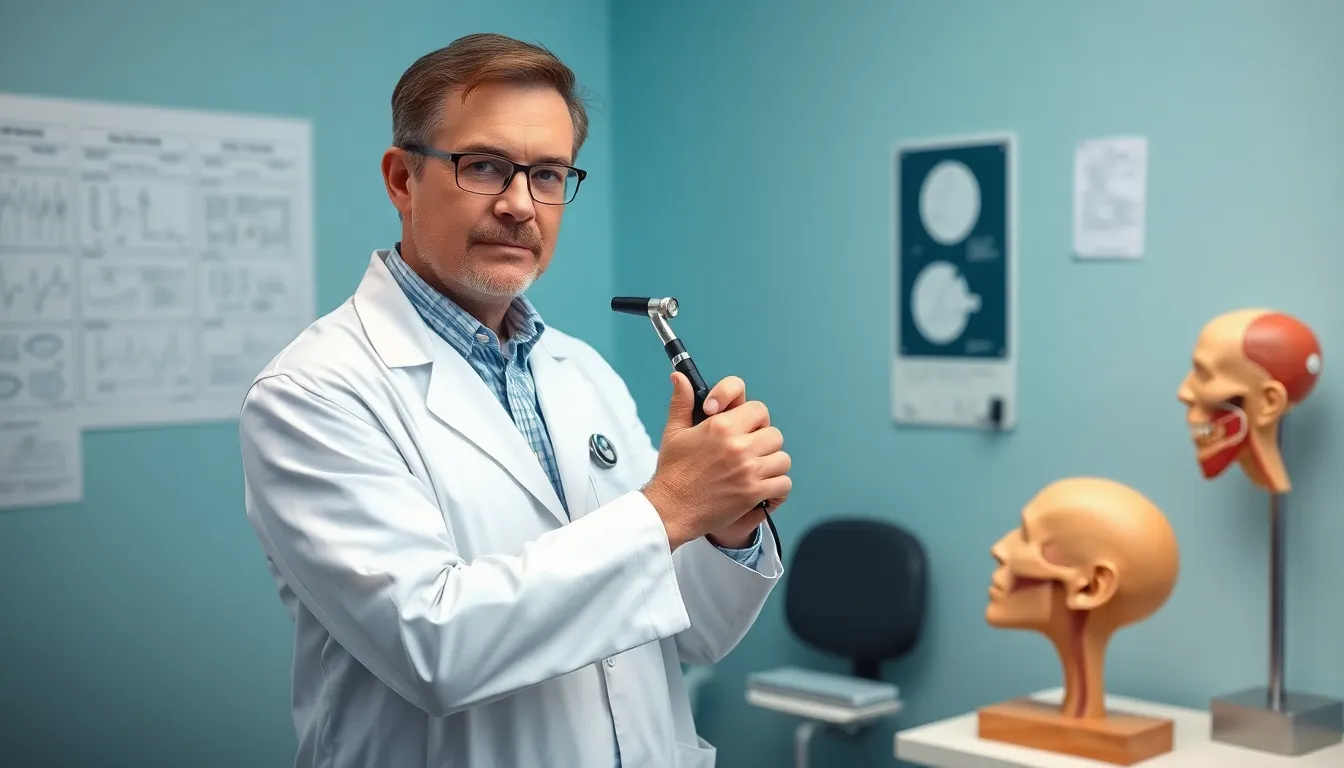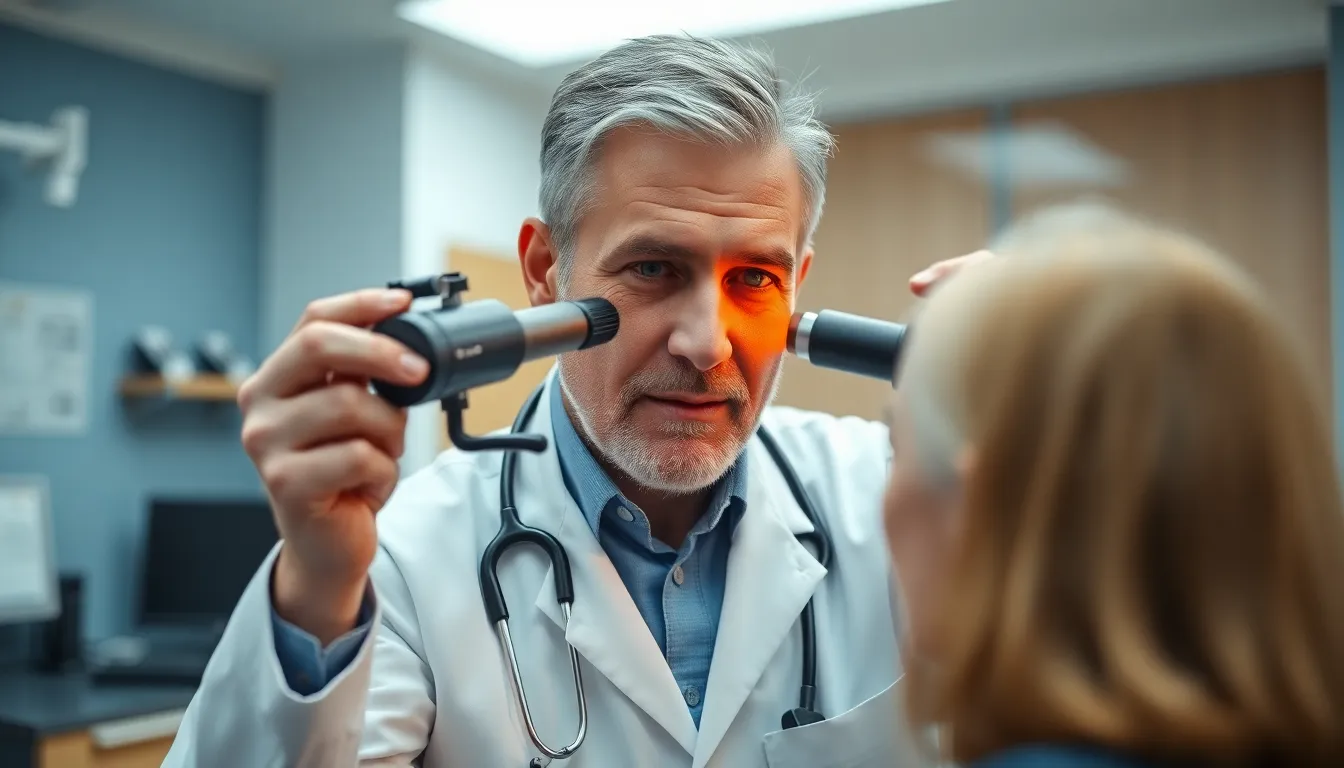In the realm of healthcare, the role of an onitorrincologista is crucial yet often overlooked. This specialized physician focuses on diagnosing and treating conditions related to the ear, nose, and throat, addressing a wide array of issues that can significantly impact daily life. From allergies to hearing loss, their expertise ensures patients receive comprehensive care tailored to their unique needs.
As the demand for ENT specialists grows, understanding the services they provide becomes essential for maintaining overall health. Patients seeking relief from chronic sinusitis or voice disorders can benefit immensely from the knowledge and skills of an onitorrincologista. By exploring this specialty, individuals can empower themselves to make informed decisions about their health and well-being.
Table of Contents
ToggleOverview of Onitorrincologista
Onitorrincologista refers to an expert in otolaryngology, focusing specifically on diagnosing and treating issues related to the ear, nose, and throat. These specialists address a variety of conditions, including allergies, hearing loss, chronic sinusitis, and voice disorders. They utilize advanced diagnostic tools and therapeutic techniques to evaluate patients’ symptoms accurately.
Common conditions that onitorrincologistas treat include:
- Allergic Rhinitis: Characterized by sneezing, congestion, and itchy eyes, this condition affects millions and may require management through medications or immunotherapy.
- Sinusitis: Inflammation of the sinus cavities leads to symptoms like facial pain and nasal congestion, often requiring medical intervention.
- Hearing Loss: Ranging from mild to profound, this condition can be diagnosed through audiometric tests, with treatment options including hearing aids or surgical procedures.
- Tonsillitis: Often caused by infections, symptoms include sore throat and difficulty swallowing, sometimes necessitating tonsillectomy.
Awareness of the services offered by onitorrincologistas promotes proactive health management. Seeking consultation early can prevent complications associated with untreated conditions, ultimately improving quality of life. Patients are encouraged to prioritize regular check-ups to monitor their ear, nose, and throat health effectively.
Importance of Onitorrincologista in Healthcare
Onitorrincologistas play a crucial role in healthcare, addressing a variety of conditions impacting the ear, nose, and throat. Their expertise ensures accurate diagnosis and effective treatment for patients experiencing these common health issues.
Role in Diagnosis
Onitorrincologistas utilize advanced diagnostic tools and techniques to identify conditions affecting the ear, nose, and throat. Common diagnostic methods include:
- Endoscopy: Allows visualization of the nasal cavity and throat, aiding in diagnosing structural abnormalities or infections.
- Audiometry: Evaluates hearing function and identifies hearing loss types and causes.
- Allergy Testing: Determines specific allergens contributing to respiratory symptoms, guiding appropriate treatment plans.
- Imaging Studies: Utilizes CT scans or MRIs to assess sinus cavities or detect tumors.
These diagnostic tools enable onitorrincologistas to create personalized, effective treatment strategies based on accurate assessments.
Role in Treatment
Onitorrincologistas offer a range of treatment options tailored to the specific conditions of their patients. Common treatment approaches include:
- Medication Management: Prescribes antihistamines or corticosteroids to manage allergies and inflammation.
- Surgical Procedures: Performs surgical interventions, such as tonsillectomies or septoplasties, to correct structural issues causing obstructive symptoms.
- Therapeutic Interventions: Provides voice therapy or hearing rehabilitation services to improve vocal function and auditory capabilities.
- Preventive Care: Educates patients on lifestyle modifications and preventive strategies to minimize recurrence of conditions.
These treatments enhance patient outcomes, restore function, and improve overall quality of life.
Common Conditions Treated by Onitorrincologista
Onitorrincologistas address a variety of conditions that significantly impact people’s quality of life. Below are some common conditions that these specialists treat.
Allergies
Onitorrincologistas frequently manage allergic rhinitis caused by environmental allergens like pollen, dust, and pet dander. Symptoms include nasal congestion, sneezing, itching, and watery eyes. Diagnostic methods involve allergy testing to identify specific triggers. Treatment options consist of antihistamines, nasal corticosteroids, and in some cases, immunotherapy to reduce sensitivity to allergens.
Sinusitis
Sinusitis, the inflammation of the sinuses, affects many individuals. It can be acute or chronic, with symptoms like facial pain, nasal obstruction, and purulent discharge. Diagnosis often requires imaging studies such as CT scans or X-rays to assess sinus structure and detect infections. Treatment generally includes nasal decongestants, saline irrigation, and antibiotics for bacterial infections. Severe cases might necessitate surgical intervention to restore sinus drainage.
Sleep Apnea
Sleep apnea involves pauses in breathing during sleep, leading to disrupted rest and adverse health effects. Onitorrincologistas evaluate this condition through sleep studies and clinical assessments. Symptoms often include loud snoring, daytime fatigue, and difficulty concentrating. Treatment approaches vary from lifestyle modifications to CPAP machines or surgical options like uvulopalatopharyngoplasty, aimed at improving airflow during sleep.
Procedures Performed by Onitorrincologista
Onitorrincologistas perform various procedures to diagnose and treat conditions affecting the ear, nose, and throat. Their expertise ensures patients receive tailored care based on their specific needs.
Allergy Testing
Allergy testing involves identifying allergens that trigger symptoms in patients. Onitorrincologistas utilize skin prick tests and blood tests to determine sensitivity to various substances, such as pollen, dust mites, and pet dander. Based on these results, they develop customized treatment plans that may include avoidance strategies, medications like antihistamines, or immunotherapy options to alleviate symptoms and improve quality of life.
Endoscopic Sinus Surgery
Endoscopic sinus surgery is a minimally invasive procedure performed to treat chronic sinusitis and other sinus-related conditions. Onitorrincologistas use a small camera and instruments inserted through the nostrils to remove blockages, enlarge sinus openings, or repair structural issues. This technique enhances sinus drainage and helps reduce the frequency and severity of infections, often leading to significant improvements in patients’ overall nasal function and health.
Conclusion
Understanding the vital role of onitorrincologistas can empower individuals to take charge of their ear, nose, and throat health. These specialists offer tailored solutions for a variety of conditions that can impact everyday life. By recognizing the importance of early intervention and regular check-ups, patients can enhance their overall well-being.
With their expertise in diagnosis and treatment, onitorrincologistas are essential in managing chronic issues and improving quality of life. Emphasizing proactive health management ensures that patients receive the care they need to maintain optimal health. Prioritizing visits to these specialists can lead to better outcomes and a healthier future.




